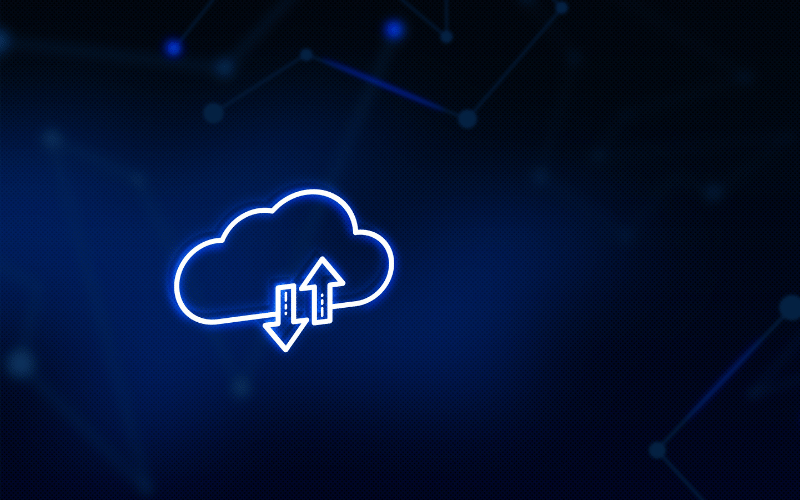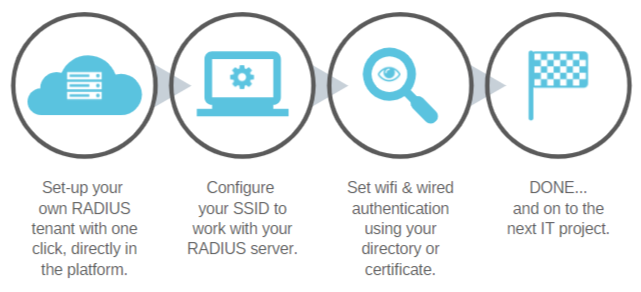Understanding RADIUS Auth
Remote Authentication Dial-In User Service (RADIUS) is a protocol that was historically designed to authenticate remote users to a dial-in access server. Today, RADIUS auth is used across an array of scenarios and is well known for it AAA capabilities — authentication, authorization, and accounting. By centralizing AAA capabilities, organizations give themselves improved security and greater efficiency. RADIUS servers provide each business with the ability to preserve the privacy and security of both the system and each individual user.
A basic RADIUS accounting process includes:
- The process starts when the user is granted access to the RADIUS Server.
- The RADIUS Client sends a RADIUS Accounting-Request packet known as Accounting Start, to the RADIUS Server. The request packet comprises the user ID, network address, session identifier, and point of access.
- During the session, the Client may send additional Accounting-Request packets known as Interim Update to the RADIUS Server. These packets include details like the current session duration and data usage. This packet serves the purpose of updating the information about the user’s session to the RADIUS Server.
- Once the user’s access to the RADIUS Server ends, the RADIUS Client sends another Accounting-Request packet known as Accounting Stop, to the RADIUS Server. The packet includes information such as total time, data, and packets transferred the reason for disconnection, and other information relevant to the user’s session.
Ultimately, RADIUS auth prevents your organization’s confidential data from being leaked. It also allows easy depreciation capabilities and enables individual users to be assigned with unique network permissions based on their location, role, etc.
RADIUS Auth in the Cloud
It’s well known today that RADIUS auth is an effective way of enhancing network security, visibility and control. Just as more and more organizations move their enterprise software stack to the cloud, so too are they demanding flexibility and ease of deployment as it relates to RADIUS. This has given rise to the cloud RADIUS, a modern take on the traditional on-premise RADIUS server.
Standing up a cloud RADIUS offers several benefits for your organization, including:
- Built-in redundancy
- Ease of deployment
- Cost efficiency
- Auto-scaling
- ..the list goes on…
For these reasons, network engineers are turning cloud RADIUS solutions in droves. And as vendors like Portnox continue to make advances in machine learning, the reliability and feature sets of cloud RADIUS options become more and more appealing.
Portnox CLEAR’s Cloud RADIUS
Securing your network will always be a priority – no doubt one of many priorities your IT team is faced with – but it doesn’t need to be a drain on time and resources. With Portnox’s RADIUS-as-a-Service solution, companies can now efficiently and affordably authenticate to wifi, VPN, switches and network devices, while simplifying administration and enabling long-term scalability.
Tired of all the heavy lifting when it comes to standing up RADIUS servers? We feel your pain, that’s why we’re making it easier than ever to securely authenticate and control wired and wireless network access for all your users and devices.
How it Works
Try Portnox Cloud for Free Today
Gain access to all of Portnox's powerful zero trust access control free capabilities for 30 days!









